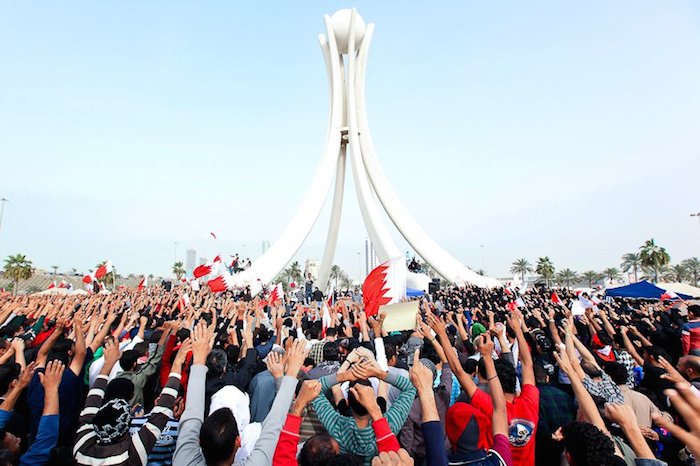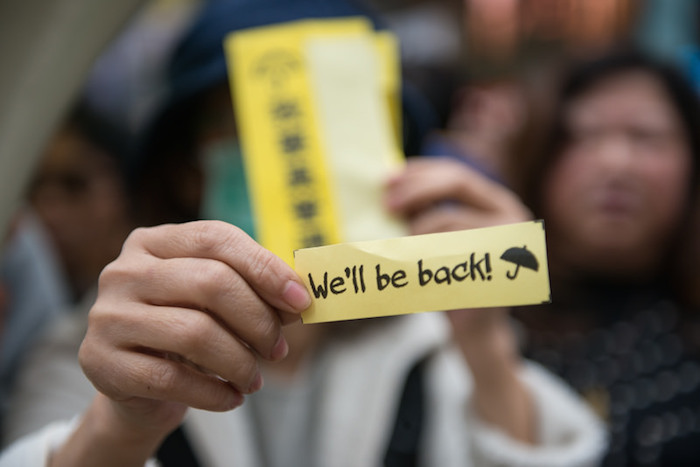Sidney Gourgel considers the apparent inconsistencies in the West’s fight for democracy and the lessons they may yield for Hong Kong’s “umbrella” activists.
Late last year when the Umbrella Movement broke out in Hong Kong, requests for British and American support intensified, as did limp attempts by Western politicians to defend their front-running ideals.
Was the United States already involved financially – as some suggested – and why did the two most democratic regions on the planet (North America and Western Europe, according to the Democracy Index) stop just short of backing the protesters outright?
The American aid debate
The National Endowment for Democracy (NED) was founded in 1983 under former US President Ronald Reagan. Although listed as a non-profit organisation, the group is mostly funded by the American taxpayer via the State Department and financiers such as Boeing, Citigroup, ExxonMobil and General Electric, among other oil, defence, telecommunications and pharmaceuticals giants.
A quick search through the NED website reveals the outrageous amounts of financial tender being poured into promoting democracy in sovereign nations.
In 2003, Republican representative Ron Paul wrote for antiwar.com:
“The NED injects ‘soft money’ into the domestic elections of foreign countries in favour of one party or the other. Imagine what a couple of hundred thousand dollars will do to assist a politician or political party in a relatively poor country abroad. It is particularly Orwellian to call US manipulation of foreign elections ‘promoting democracy.’ How would Americans feel if the Chinese arrived with millions of dollars to support certain candidates deemed friendly to China? Would this be viewed as a democratic development?”

In April, 2014, former chief secretary Anson Chan, accompanied by Legislative Council member Martin Lee, visited US Vice President Joe Biden. The Hong Kong delegation was hosted at both the White House and the NED, where they reportedly tried to rally support for the Occupy movement.
NED has openly fed Hong Kong millions of US dollars allocated for the city’s democratic ambitions. So why did the NGO release a statement in October last year publicly distancing itself from the Occupy Movement? Is the NED actually supporting democracy worldwide as it states, or is it more interested in maintaining and expanding their corporate financiers’ global dominance?
This state of apparent confusion and misdirection doesn’t only manifest itself in the NED, however. It seems to be abundant in the highest levels of governments worldwide, but is perhaps most noticeable and jarring when displayed by the biggest self-proclaimed pillars of democracy – the Western world and any government that follows suit.
Worldwide democratic neglect
This, however, cannot be said for democracy campaigners in Bahrain.

Any palpable response by the Western world is yet to be seen, however.
On Dec. 6 last year, Al Jazeera, reported on Britain’s naval expansion in the region. As written in the Independent newspaper:
“Nabeel Rajab, a Bahraini opposition politician and president of the Bahrain Centre for Human Rights, said, ‘This base is a reward to the British government for the silence they provided on human rights abuses in Bahrain, and for their continued support of this tyrannical and corrupt regime. The money to be paid by Bahrain to build this base, in fact, is for buying the silence of the British Government and support for the regime and against our struggle for justice, democracy and human rights.”
And then – dare I even mention it – comes the ever-ignored issue of Palestine.
Paraphrasing the Congressional Research Service’s report released on, April 11 2014 entitled “US Foreign Aid to Israel”, the Americans provide Israel with UDS3.1 billion (HKD24 billion) a year in military aid, about USD8.5 million (HKD65.9 million) a day.
In contrast to the unconditional support the US commits to Israel, on Dec. 31 2014, the American delegation, along with the Australian delegation, rejected a Palestinian proposal for statehood at the UN Security Council.
Lastly, while world leaders gathered in a rally for universal freedoms of expression following last month’s Paris terrorist attacks, 116 people in Tembagapura, West Papua, were arrested, stripped and tortured by Indonesian military police for demonstrating against what they perceive as forced governance.
The double standard is hard to ignore.

The future of Hong Kong lays in the hands of the people, and if the people constantly overlook Western corporate and diplomatic hypocrisies, we may yet plunge into further chaos.
On the contrary, questioning the unshamedly two-faced policies of these leading global powers may help us bridge the gap between the rich and the poor, move towards global peace, and, perhaps one day, achieve a truly independent Hong Kong.



